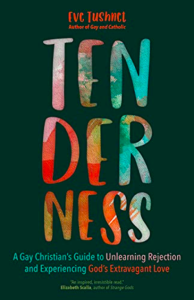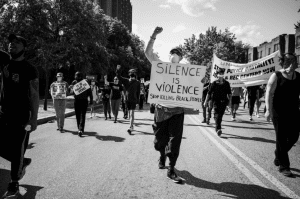No Longer Strangers
No Longer Strangers: Finding Belonging In a World of Alienation is the second book by Gregory Coles, following up on his debut Single, Gay, Christian: A Personal Journey of Faith and Sexual Identity. InterVarsity Press is the publisher. It’s already available for pre-order, and comes out next Tuesday.

The Good Points
Although we’re both Side B1 and travel in some of the same circles, I haven’t read Coles’ first book, so I didn’t really know what to expect when he invited me to review this one. My initial reaction was simply that it’s so wonderfully well-written, I want to go back and read the first one! Zipped through it, too: it’s about two hundred pages, and (when I finally got to it! I’m sorry!) I finished it in a couple of days.
It departs from the “script” of the Side B testimonial, mostly because it isn’t one. Rather, this book is about living life as a Christian celibate—which is not the same thing as being single.2 This is the more significant in that Coles, unlike me and a lot of my readership, is a Protestant, and few Protestant traditions (at least in this country) have any kind of customary niche for celibacy. Indeed, some are overtly hostile to the practice, the examples of Christ and St. Paul notwithstanding; but I digress.

Coles delves into his experience finding community with fellow Christians, single and married, as someone for whom marriage isn’t on the table. For most of us, this is the hard part of conceptualizing what a Side B life is supposed to look like; he makes it seem downright natural. That people should be in each other’s lives and share each other’s time, resources, and affections feels incredibly simple and true when I read it on these pages. Moreover, unlike some Side B writers (e.g. me), there’s very little angst in No Longer Strangers; Coles seems genuinely content in his vocation.
This isn’t to say he candy-coats things in the slightest (a trait I can’t stand in any writer, least of all on a subject like this). I particularly resonated with his description of the worrisome prospect of looking for a church after coming out of the closet:
Should I simply send an email to each church’s pastors, explain my situation, and see whose response I liked best? I felt instinctively unsettled by the confrontational nature of that approach. … But the thought of going into a church unannounced nauseated me even more. … Would I discover when that shoe finally dropped that I was too progressive to belong with them? Too conservative? Too outspoken? Too gay? Would they try to tell me—with their eyes, if not with their words—that someone like me could only ever be a second-class citizen in the kingdom of heaven? Many of my LGBTQ friends had experienced deep wounding at the hands of their local church communities. They had been treated with heightened scrutiny and suspicion because of their sexuality, urged to stop talking about their experiences and return to the closet, denied or removed from visible service within the church, told that being gay made them more sinful and more fallen than the holy heterosexuals.
Even apart from his spiritual and psychological insights, Coles is really funny and relatable. His description of being a guest at a gathering where he hardly knew anybody, and blithely cleaning his hosts’ microwave simply because he wanted something useful to do and it had never occurred (or been explained) to him that such an action would probably be perceived as rude, is, well, exactly the kind of thing that I would do in the same situation. It was also just personally interesting to compare notes with him, as a fellow “third culture kid“: his parents were missionaries in Indonesia, my dad was in the Navy. It’s always nice to run across a fellow goofy weirdo.
The Bad Points
Hardly anything, honestly. However, one chapter does come to mind, in which he describes something that every out LGBTQ Christian has long learnt to dread: a “let’s get coffee” with a fellow believer who wants to “speak the truth in love” to us about homosexuality. The conversation ended, as many such do, with the effective termination of the acquaintance. The fellow believer in question and his wife, after determining that their church stood behind Coles and would not discipline him or remove him from ministry, left that church. Coles narrates the whole thing with admirable tenderness and charity.

But I was hoping for something else from him: not instead of, but in addition to, what he offered. That something is, in brief, righteous anger. (To be clear, I don’t mean I want Coles’ personality to be different or anything like that, which would be rude and ridiculous—and personal criticisms aren’t the sort of thing you should put in a book review anyway!) The words and decisions he describes were not merely offenses against him as an individual, though they were certainly that. They were distortions of the actual commands of Scripture—which lay no further burden than chastity upon gay people, something Coles has already accepted, and in a very public way at that. And while he doesn’t go into great detail about the conversation and I therefore don’t want to make too many assumptions, even the few details he does mention are pretty damning—like this person’s insistence on reading the story of Sodom, as if the behavior recounted in that passage were relevant to Coles’ life, or indeed to the lives of most gay people. This kind of thought is psychologically and socially damaging to every LGBTQ person, especially young people, no matter where this couple goes to church or what relationships they break.
Obviously, Coles isn’t in control of their actions; and it isn’t his responsibility to change their minds. But, alongside his words of patient love, I wanted badly to see an explicit recognition of the serious injustice these people were committing, and are presumably continuing to commit, no matter how good they (or he) believe their intentions are.
My Recommendation
Tolle lege! Side B literature is still sparse, but growing, and I’m happy to see a high-quality addition to the list. I’m particularly glad to see something that doesn’t center on sex, as so many Christian books about chastity-and-adjacent-issues paradoxically do. And I look forward to any future projects Coles sets his hand to.
1For those unfamiliar, “Side B” is a shorthand in LGBTQ Christian circles for people who identify as some type of sexual minority (and usually reject ex-gay therapies), but affirm the mainstream Christian belief that marriage is meant for one man and one woman. Dr. Wesley Hill and Eve Tushnet are prominent Side B authors, and Revoice is a yearly evangelical conference for Side B people and their loved ones.
2That is, they may be the same sacramentally, but they’re not the same in terms of personal or social life.
















